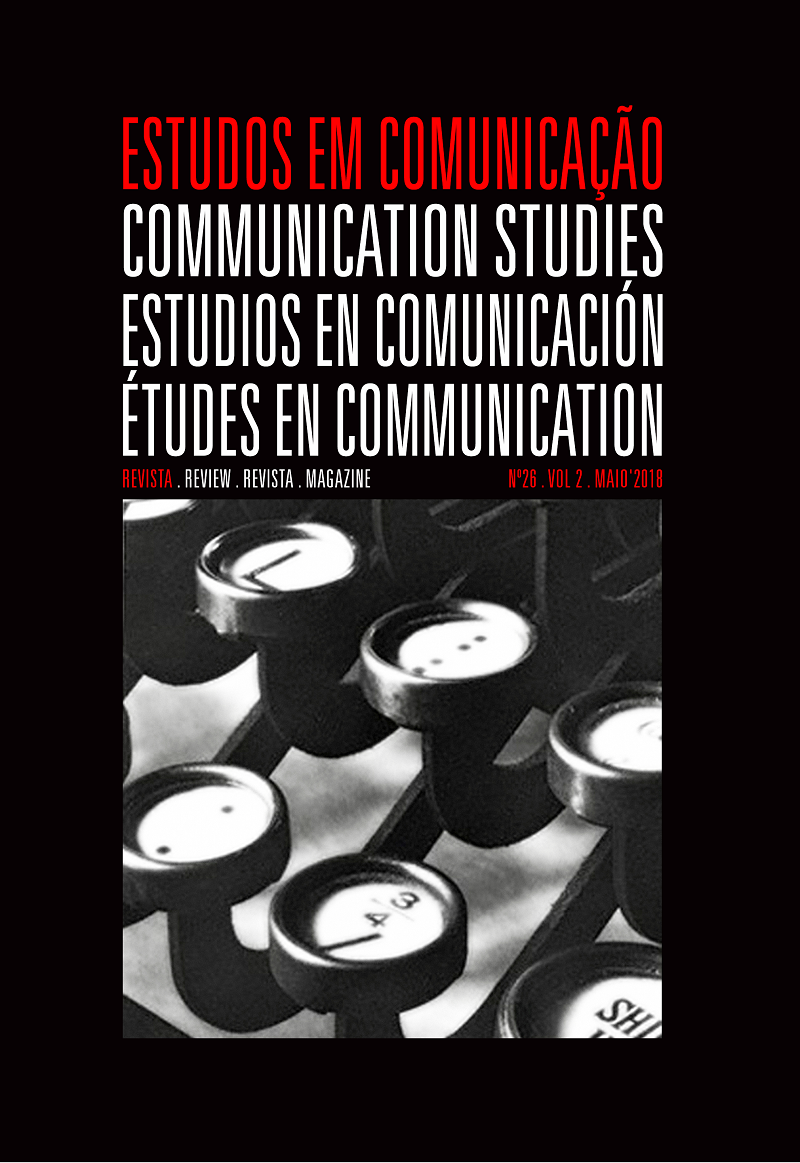Fábrica de controle de pensamentos: doutrinação e propaganda na perspectiva de Noam Chomsky
Keywords:
cold war, new world order, indoctrination, propaganda.Abstract
In this article, the observation comes from a specific context in the analytical work of the linguist, philosopher and activist Noam Chomsky: the occa- sion of implantation of the New World Order. As staunch critic of US foreign policy, his analysis is inherent to changes in the international order that began just after World War II (1939-45). Chomsky exposes the American plan of domination or global supremacy whose primary intent was conquest of socalled "Grand Area", launched after the war, wich triggered the Cold War. The thinker discusses the contradictions and farces of the war and the terrorist state, as well as evaluating the attempts of indoctrination through propaganda and its mechanisms of persuasion, manipulation and control of popular judgment in the search for the formation of a public opinion favorable to establishment and maintenance of the status quo. One of the most effective tactics of propaganda observed by Chomsky is the lan- guage used to undermine or exalt ideologies. Speech and word are fundamental elements in understanding propaganda inlight of Chomsky’s thinking. Propaganda brings forth facade terms, that is, signifiers with previously disguised meanings to evoke misconceptions and misrepresent ideas and facts. In this sense, the ’common’ meaning does not corres- pond to the ’doctrinal sense’.
References
Amaral, L. (1996). A objetividade jornalística. Porto Alegre: DC Luzzatto.
Atem, G. N. (2008). Guerra semiótica, jornalismo e propaganda. Estudos em Jornalismo e Mídia, V(1), 161-172.
Barsky. R.F. (2004). Noam Chomsky: a vida de um dissidente. São Paulo: Conrad Editora do Brasil.
Chomsky, N. (1996a). Novas e velhas ordens mundiais. São Paulo: Scritta.
Chomsky, N. (1996b). Minoria prospera e a multidão inquieta. Brasília: Editora Universidade de Brasília.
Chomsky, N. (1996c). O que o Tio Sam realmente quer. Brasília: Editora Universidade de Brasília.
Chomsky, N. (1997). Segredos, mentiras e democracia. Brasília: Editora Universidade de Brasília.
Chomsky, N. (1997). Consentimento sem consentimento: a teoria e a prática da democracia. Es- tudos Avançados, 11(29), 259-276. https://dx.doi.org/10.1590/S0103-40141997000100014.
Chomsky, N. (n.d). Propaganda ideológica e controle do juízo público. Rio de Janeiro: Achiamé. Chomsky, N. (2002). O lucro ou as pessoas: neoliberalismo e ordem global. Rio de Janeiro:
Bertrand Brasil.
Chomsky, N. & Barsamian, D. (2003). Propaganda e consciência popular. Bauru, SP: EDUSC.
Chomsky, N. & Herman, E. S. (2003). A manipulação do público. São Paulo: Futura.
Gellhorn, M. (2009). A face da guerra. Rio de Janeiro: Objetiva.
Klapper, J. T. (1957). Os efeitos da comunicação de massa. In G. Cohn (org.), Comunicação e indústria cultural. São Paulo: Companhia e Editora Nacional, 1972.
Mitchell, P. R. & Schoeffel, J. (eds.) (2005). Para entender o poder: o melhor de Noam Chomsky. Rio de Janeiro: Bertrand Brasil.
Prado, R. S. (2006). Medo na mídia: uma visão distorcida da violência. Monografia apresentada à Faculdade de Comunicação e Biblioteconomia, do curso de Publicidade e Propaganda da Universidade Federal de Goiás.
Schudson, M. (2010). Descobrindo a notícia: uma história social dos jornais nos Estados Unidos. Petrópolis, RJ: Vozes.
Downloads
Published
Issue
Section
License
Estudos em Comunicação/Communication Studies is an Open Access journal. All its content is freely available without charge to the user or his institution. Users are allowed to read, download, copy, distribute, print, search, or link to the full texts of the articles in this journal without asking prior permission from the publisher or the author. Estudos em Comunicação, by Labcom, is licensed under a Creative Commons Atribuição-NãoComercial-SemDerivações 3.0 Unported License. By submitting your work to Estudos em Comunicação/Communication studies you confirm you are the author and own the copyright, that the content is original and previously unpublished, and that you agree to the licensing terms.


